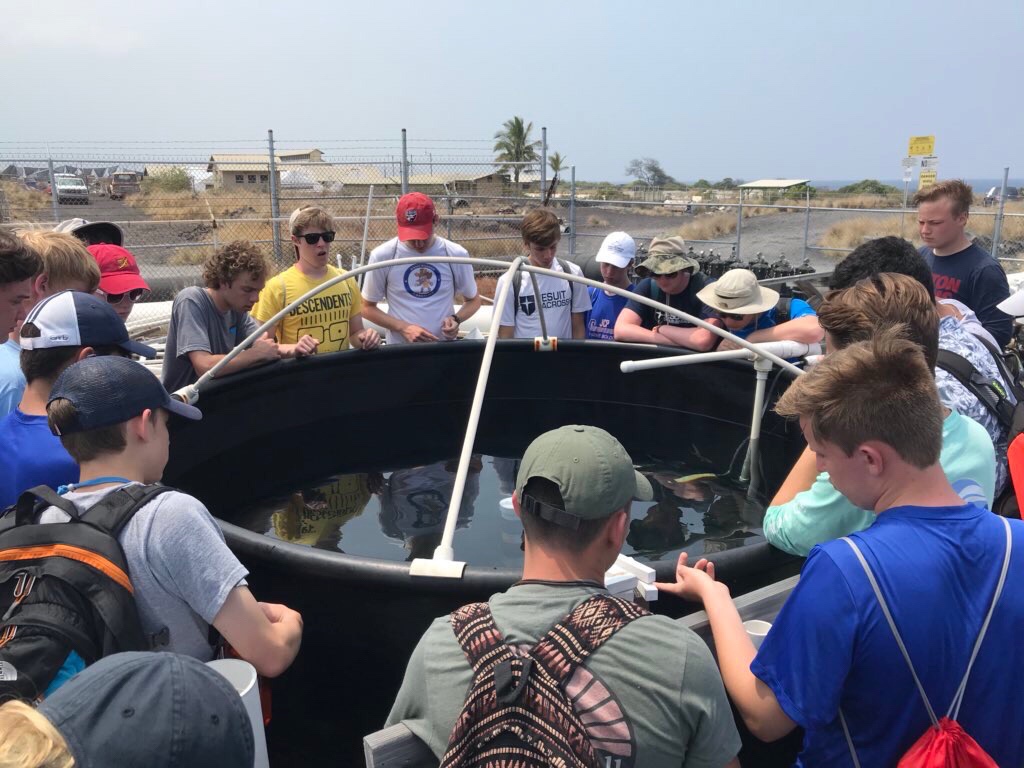Friday 27, 2018
The day has finally arrived for the night dive, but before we would jump right into it, we spent our day at NELHA once again for a lesson in aquaculture. Like agriculture, the practice is namely raising fish in an aquatic environment. In Kona, many different studies on aquaculture have been underway. Most of the research has gone to feed to sustain different types of fish, since many of what we eat are carnivorous. Scientists with NELHA are creating pellet diets containing only vegetarian components, hopefully matching the protein diet they’re used to. The Kampachi fish farm mainly researches these fish, such as groupers, to help those in the field grow and sustain a large population of fish. Humans do have an odd impact on these farms, mainly with netting. Over time, humans have been using different materials to make their nets, ranging from nylon to copper, and each have had they’re individual issues. NELHA has found that a copper alloy netting will reduce the amount of cleaning needed to be done, and can last up to 8 months. This type of netting will hopefully reduce the need for nylon, which injures and snares marine life. After our day at the Kampachi Fish Farm, we rested and headed out for the black water dive. I was absolutely terrified, especially when I was told I would be jumping in first. The moon and fog over the water set an eerie mood, and the darkness of the water intimidated me. Our dive masters spoke of Oceanic White Tip Sharks and their possibility to show up aggravated. If one did present itself as hostile, we would have to end the dive immediately. As terrifying thoughts ran through my head, we geared up and got ready to dive. We set up around three miles off the harbor, and the water below was around 6000 feet deep. Once I was in, however, it was much less intimidating than I thought. Although creepy, the lights and company of the dive guides and Joshua Lambis comforted me. We saw gigantic siphonophores, which are chained up invertebrates that can extend up to 40 feet long! I saw a group of purple back squid zoom by underneath me as well. All of these creatures were glowing in magnificent colors, even the smallest ones. Their bioluminescence shown in all different ways, including gold and purple. Joshua found a worm in the water, and flicked it to produce a cloud of gold, which was definitely one of the coolest parts of the dive. No sharks showed up, and no danger presented itself to any of us. The dive was absolutely incredible, and I hope to have another chance to go again later in life. We returned late at night to rest up for our big day of service and hiking to follow, and I can’t wait to see Pololu Valley. 




